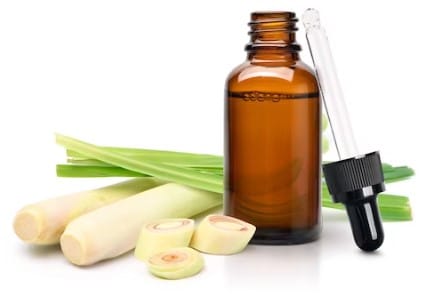

Dogs suffering from a lemongrass oil allergy may experience skin irritation, reddening of the skin, hair loss, scabbing/sores, and/or itching. They may also experience digestive distress, including vomiting and diarrhea, as well as breathing difficulties.
Dogs suffering from a lemongrass oil allergy are often allergic to some of its various components, such as limonene, geraniol, and limonene oxide. When these components come into contact with the dog’s skin, they cause an allergic reaction, causing the symptoms mentioned above. Ingestion of the oil can cause digestive problems, as the body tries to clear it out. Inhaling the oil can cause difficulty breathing, as the oil irritates the airways.
The diagnosis of a lemongrass oil allergy in dogs starts with a physical examination and a discussion of the dog’s medical history, diet, and living environment. Diagnostic tests such as skin tests, blood tests, and/or an intradermal test may be used to confirm a diagnosis. A veterinarian may also collect samples of the skin for further testing and observation. Treatment may involve removing the allergen from the environment and providing medication such as antihistamines, corticosteroids, or cyclosporine to help manage the allergy symptoms.
A lemongrass oil allergy in dogs can be very serious, especially if they experience breathing difficulties. The mortality rate is likely to be high if it remains untreated since breathing difficulties can be very dangerous in an animal with a restricted respiratory system. Proper diagnosis and treatment is necessary to ensure the best outcome for the dog.
Dogs with lemongrass oil allergies should be treated with an allergy medication, such as an antihistamine, to help reduce the symptoms they are experiencing. Additionally, they should be bathed in a gentle, non-irritating shampoo such as oatmeal shampoo to soothe any skin irritation, and discontinue using any products containing lemongrass oil. Their diet should also be restricted, and they should be fed only hypoallergenic foods to prevent further reactions. A visit to the veterinarian may also be necessary to ensure there are no underlying problems causing the allergy.
To prevent lemongrass oil allergic reactions in dogs, owners should avoid using products that contain lemongrass oil around their pets. If possible, switch to an alternative, natural ingredient. Owners should also be careful when planting lemongrass in their gardens, as pets often come into contact with these plants. If their pet does suffer from a severe allergic reaction, contact a veterinarian immediately for appropriate treatment.
The lemongrass oil allergy in dogs is not contagious and cannot affect humans. However, humans may experience skin irritation or hives if exposed to the oil.
Home remedies for this type of allergy include avoiding exposure to lemongrass oil, utilizing a moisturizing shampoo and conditioner designed specifically for dogs with allergies, and feeding a grain-free diet. In severe cases or if symptoms don’t improve with home remedies, it is important to contact your veterinarian for further assessment and treatment.
While home remedies can be helpful for lemongrass oil allergies in dogs, it is important to remember that they are not a guaranteed solution. It is always best to contact your veterinarian if symptoms don’t improve to ensure that your pet gets the right diagnosis and treatment.
Some of the dog breeds that are particularly susceptible to an allergy to lemongrass oil are Labrador Retrievers, Poodles, Bulldogs, Dalmatians, Bichon Frises, Shih Tzus, Boston Terriers and Maltese. These breeds all have sensitive skin or fur which makes them more vulnerable to irritants such as lemongrass oil. This sensitivity is further intensified by their willingness to groom and lick respective body parts when exposed to the oil. As such, it is important to take necessary precautions to protect them from exposure to lemongrass oil.
Has your dog ever experienced a lemongrass oil allergy? If so, how did your pup respond to the symptoms? How did you feel about the process? How did you manage the experience? If not, it’s important to be aware of the signs in order to recognize and act to help with any future reactions. No matter the outcome, we wish your pup health and happiness.